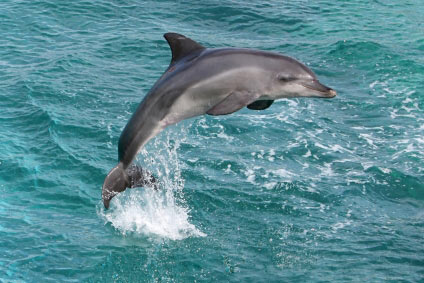Animals Think About Thinking, Research Suggests

Get the world’s most fascinating discoveries delivered straight to your inbox.
You are now subscribed
Your newsletter sign-up was successful
Want to add more newsletters?

Delivered Daily
Daily Newsletter
Sign up for the latest discoveries, groundbreaking research and fascinating breakthroughs that impact you and the wider world direct to your inbox.

Once a week
Life's Little Mysteries
Feed your curiosity with an exclusive mystery every week, solved with science and delivered direct to your inbox before it's seen anywhere else.

Once a week
How It Works
Sign up to our free science & technology newsletter for your weekly fix of fascinating articles, quick quizzes, amazing images, and more

Delivered daily
Space.com Newsletter
Breaking space news, the latest updates on rocket launches, skywatching events and more!

Once a month
Watch This Space
Sign up to our monthly entertainment newsletter to keep up with all our coverage of the latest sci-fi and space movies, tv shows, games and books.

Once a week
Night Sky This Week
Discover this week's must-see night sky events, moon phases, and stunning astrophotos. Sign up for our skywatching newsletter and explore the universe with us!
Join the club
Get full access to premium articles, exclusive features and a growing list of member rewards.
Some animals are more thoughtful than others, according to a comparative psychologist who says evidence is mounting that dolphins, macaque monkeys and other animals share our ability to reflect upon, monitor or regulate their states of mind.
J. David Smith of the University at Buffalo notes that humans are capable of metacognition, or thinking about thinking. "Humans can feel uncertainty. They know when they do not know or remember, and they respond well to uncertainty by deferring response and seeking information," Smith writes in the September issue of the journal Trends in Cognitive Sciences.
And accumulating research, he says, suggests metacognition is not unique to humans.
"The idea is that some minds have a cognitive executive that can look in on the human's or the animal's thoughts and problem-solving and look at how its going and see if there are ways to guide it or if behavior needs to pause while more information is obtained," Smith told LiveScience.
Robert Hampton, assistant professor of psychology at Emory University in Georgia, who studies neuroscience and animal behavior, agrees that some animals show metacognition.
"Work with primates has shown many parallels with human metacognitive performance," said Hampton, who was not involved in the current review study. "In particular, some of the studies done by Dr. Smith and colleagues have shown close correspondence between the performance of humans and monkeys in nearly identical metacognitive tests."
Thoughtful tests
Get the world’s most fascinating discoveries delivered straight to your inbox.
Testing metacognition in humans is a relative walk in the park, as we can verbalize our feelings of knowing or not knowing. But animals can show off their mental skills without words. For instance, scientists give animals difficult perceptual tasks, such as deciding whether a box on a screen contained thousands of dots or just a few. The animals also have an out: They can decline the trial and avoid a penalty for a wrong response.
The original experiment showing such mental abilities in a non-human animal involved the dolphin Natua. "When uncertain, the dolphin clearly hesitated and wavered between his two possible responses," Smith said. "But when certain, he swam toward his chosen response so fast that his bow wave would soak the researchers' electronic switches."
"The opposite would be they just react to the world," Smith said. That's exactly what studies on pigeons have shown. When in doubt, the birds just plow ahead, it seems.
Several converging studies now show that capuchin monkeys barely express the cognitive ability that dolphins have expressed, though similar studies of macaque monkeys suggests these primates do think about thinking.
Smith said perhaps certain branches in the primate order developed metacognitive abilities while others didn't. Another idea is that the relatively big-brained animals, like dolphins, evolved this capacity.
So even if lowly pigeons don't boast the mental prowess, crows might, he figures. "It would be great to see if the ultimate in bird brains have this capacity as well," Smith said. Other research finds crows to be amazingly smart and adept at tool use.
Self-awareness
And while metacognition can involve self-awareness, the "I" part of the equation isn't a necessary ingredient, Smith said. Scientists are not sure if other animals possess self-awareness.
Hampton gives two examples to illustrate metacognition with and without self-awareness. If a psychologist is asked if she can answer a five-year-old's psychology question, she will answer yes, reasoning that she is an expert and that a 5-year-old can't have too difficult of a question. "This is likely to be correct, and thus the psychologist has correctly predicted her cognitive performance. However, she did not need to introspect in any significant way to do this," Hampton said.
Say that same psychologist is asked if she'll remember the neighbor's name when he comes over for a party. When she tries to recall the name, she comes up with "Dave," the correct name. So she would answer "yes."
"Again, this metacognitive prediction of cognitive performance is likely correct. But note here that the psychologist is the only one in a position to know with confidence whether she can remember the name," Hampton said. "No one else could predict her performance as well as she could, contrasting with the other example. This second case of metacognition is much more likely to involve self-awareness or consciousness."
Further research is needed to tease out any self-awareness in animals, Smith said.
- Video – Clever Primates
- 10 Amazing Things You Didn't Know About Animals
- Top 10 Mysteries of the Mind
Jeanna Bryner is managing editor of Scientific American. Previously she was editor in chief of Live Science and, prior to that, an editor at Scholastic's Science World magazine. Bryner has an English degree from Salisbury University, a master's degree in biogeochemistry and environmental sciences from the University of Maryland and a graduate science journalism degree from New York University. She has worked as a biologist in Florida, where she monitored wetlands and did field surveys for endangered species, including the gorgeous Florida Scrub Jay. She also received an ocean sciences journalism fellowship from the Woods Hole Oceanographic Institution. She is a firm believer that science is for everyone and that just about everything can be viewed through the lens of science.
 Live Science Plus
Live Science Plus










